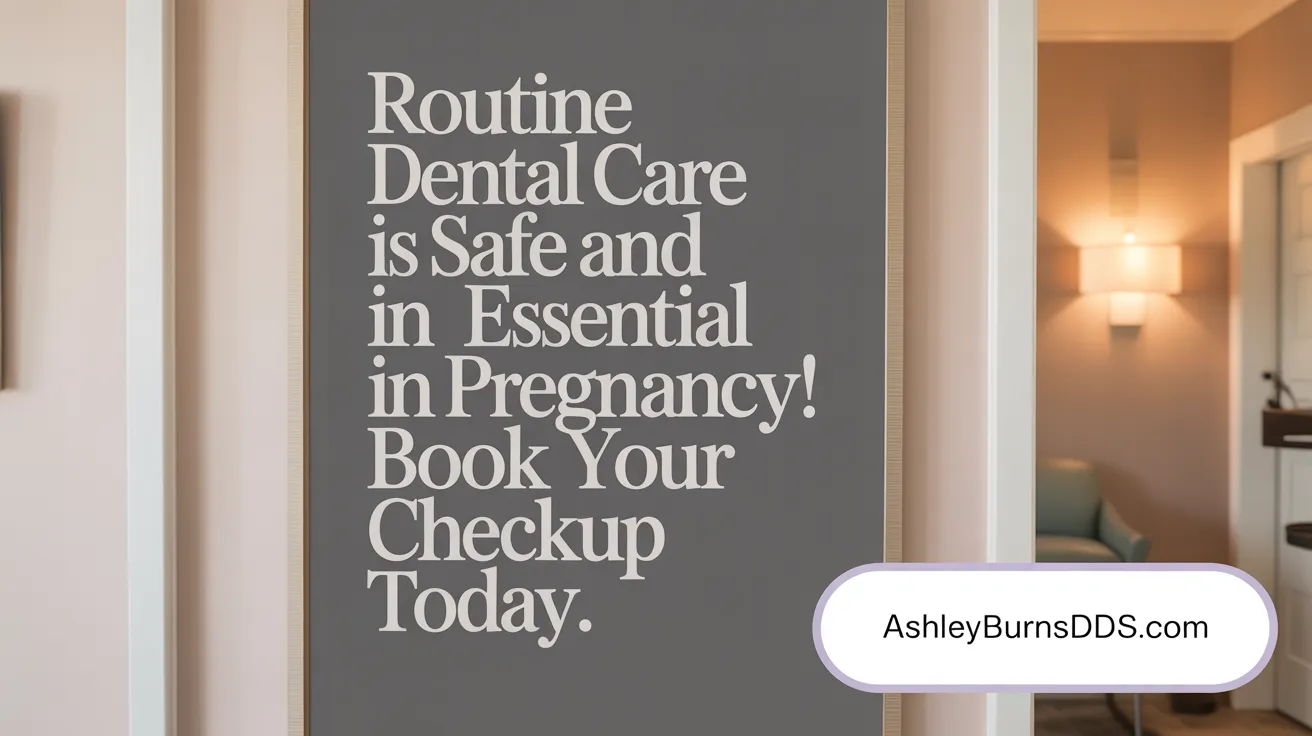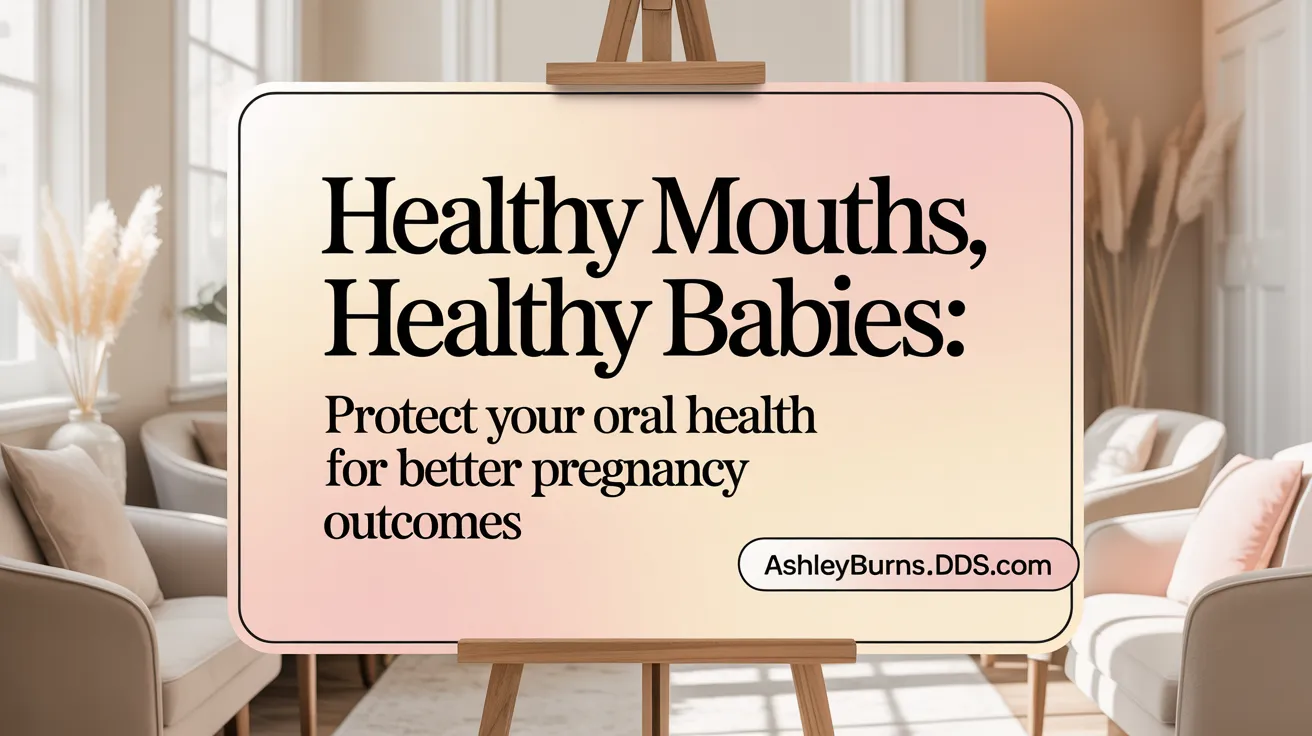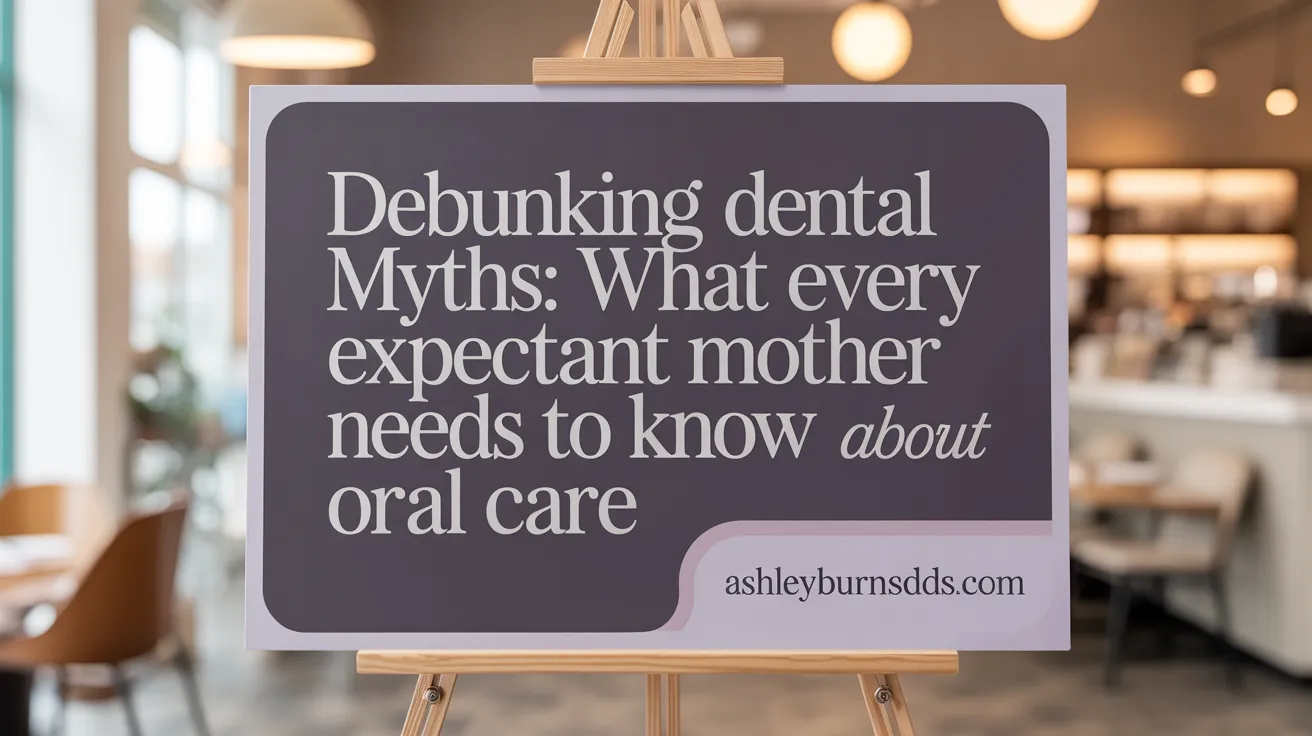Understanding Dental Health Changes in Pregnancy
Pregnancy brings many changes to the body, including significant effects on oral health. Hormonal fluctuations and lifestyle adaptations during this time can increase risks for gum disease, tooth decay, and enamel erosion. However, with proper care and knowledge, pregnant women can maintain excellent dental health, benefiting both themselves and their babies. This article provides comprehensive guidance on how to care for your teeth during pregnancy, covering safe dental practices, preventive measures, dietary recommendations, and common myths.
How Pregnancy Affects Dental Health and Oral Hygiene

How does pregnancy affect dental health and oral hygiene?
Pregnancy brings about significant hormonal changes, particularly increases in progesterone and estrogen, which can influence the health of your gums and teeth. These hormonal shifts make the gums more sensitive to bacteria and increase the likelihood of inflammation, leading to a condition called pregnancy gingivitis.
This gum inflammation can cause swelling, redness, tenderness, and bleeding, especially during brushing or flossing. If untreated, it can develop into more serious gum disease called periodontitis, which involves bone loss and can jeopardize your oral health.
In addition, pregnancy-related hormones can make plaque—and the bacteria within it—more irritating to the gums, heightening your risk of cavities and other dental problems. Morning sickness is common during pregnancy, and the stomach acids from vomiting can erode tooth enamel, weakening teeth and increasing decay risk (pregnancy-related vomiting and teeth).
To keep your smile healthy, maintaining good oral hygiene is essential. Regular brushing twice daily with fluoride toothpaste, flossing daily, and routine dental check-ups can help manage these changes and prevent complications. Rinsing with water or a fluoride mouthwash after vomiting, rather than brushing immediately, can help protect your enamel (oral hygiene during pregnancy).
Overall, understanding how pregnancy impacts your oral health emphasizes the importance of consistent dental care and good hygiene practices during this vital period (pregnancy and dental problems.
Safe Dental Care Practices and Procedures During Pregnancy

Recommended dental care routines during pregnancy
Maintaining good oral hygiene is essential during pregnancy. Women should brush teeth twice daily with fluoride toothpaste for at least two minutes, using a soft-bristled toothbrush. Flossing daily helps remove plaque between teeth and along the gumline, reducing the risk of gingivitis. Rinsing with an fluoride mouthwash, especially at night, further supports oral health.
Healthy eating habits also play a vital role; reducing sugary foods and beverages, and eating a balanced diet rich in calcium and vitamin D support teeth and bone strength for both mother and baby.
Timing and safety of dental visits
It is recommended that pregnant women schedule dental checkups before pregnancy or in the second trimester when most safely and comfortably performed. Routine dental treatments, including cleanings, fillings, and X-rays with proper shielding, are safe throughout pregnancy.
Women should inform their dental practitioner about their pregnancy at the time of their appointment. Preventive dental care during pregnancy helps prevent issues like gingivitis, which affects up to 75% of pregnant women.
Use of local anesthetics and antibiotics in pregnancy
Local anesthetics such as lidocaine, used with or without epinephrine, are considered safe during pregnancy when used in recommended doses. Antibiotics like penicillin, amoxicillin, and clindamycin are also deemed safe for treating dental infections.
Any medications should be prescribed in consultation with the healthcare provider, ensuring they are appropriate for pregnancy (ADA guidelines).
Safety of dental X-rays with shielding
Dental X-rays can be safely performed during pregnancy provided proper precautions are observed. Lead aprons and thyroid collars should be used to shield the abdomen and thyroid, minimizing radiation exposure. Modern digital radiography involves low radiation doses, making routine X-rays safe when necessary (American Pregnancy Association).
Emergency versus elective dental treatments
Emergency dental procedures, such as dealing with severe pain, infections, or trauma, can and should be addressed promptly at any stage of pregnancy. Elective procedures, like teeth whitening or cosmetic treatments, are usually postponed until after delivery.
Elective treatments are ideally scheduled during the second trimester to optimize safety and comfort (Virginia Medicaid guidelines).
Guidelines for dental treatment in each trimester
In the first trimester, elective treatments are generally avoided to reduce risks to the developing fetus. Only urgent and necessary procedures are performed.
During the second trimester, organ development is complete, and women often experience more comfort, making it the preferred period for most dental treatments.
In the third trimester, treatments are limited to urgent needs, and procedures are carefully planned to avoid discomfort and position-related complications.
Regular communication between the dentist and obstetrician ensures that treatments align with the health needs of both mother and baby (ACOG Clinical Guidance).
Preventing Dental Problems: Hygiene and Behavioral Strategies
What preventive measures can pregnant women take to avoid dental problems such as cavities and gum disease?
Maintaining good oral hygiene during pregnancy is essential during pregnancy to prevent common dental issues like cavities and gum disease. Pregnant women should brush their teeth at least twice daily with fluoride toothpaste during pregnancy, focusing on gentle but thorough cleaning. Flossing daily helps remove plaque and food particles between teeth, reducing the risk of inflammation.
To manage morning sickness and protect enamel, rinsing with a baking soda and water solution after vomiting can neutralize acids and prevent erosion without immediately brushing, which may damage weakened enamel. Chewing sugar-free gum containing xylitol after meals can help reduce cavity-causing bacteria in the mouth.
Routine dental visits are crucial for early detection and treatment of dental problems. These visits are safe during pregnancy and can help keep gums healthy, especially since hormonal changes increase susceptibility to gum inflammation.
Also, avoiding sugary snacks and beverages, especially between meals, decreases bacteria fuel and acid production, lowering decay risk. Incorporating a healthy diet rich in calcium, vitamins D and C, and limiting processed carbs supports oral and overall health.
Furthermore, pregnant women should avoid tobacco and alcohol, which can exacerbate oral health issues and overall pregnancy risks. Regular professional cleanings and advice from dental care providers contribute significantly to preventing dental problems during this important time.
By adopting these simple but effective hygiene and behavioral practices, pregnant women can significantly reduce their risk of dental complications, ensuring healthier gums, teeth, and overall well-being for themselves and their babies.
Nutrition and Dietary Guidance for Optimal Dental Health During Pregnancy
During pregnancy, maintaining proper nutrition is essential not only for the mother's overall health but also for the development and preservation of the teeth. A balanced diet that emphasizes key nutrients supports oral health during pregnancy and fetal dental growth. Calcium is vital; sources include dairy products, fortified plant-based beverages, leafy greens, and nuts. Vitamin D enhances calcium absorption and can be obtained through sun exposure, foods like fatty fish, eggs, fortified foods, or supplements under medical supervision.
Folic acid, crucial for preventing birth defects, also aids in dental tissue development. It is recommended to consume at least 600 micrograms daily from foods like leafy greens, citrus fruits, and grains or through supplements (Folic acid benefits in pregnancy.
Limiting sugary and acidic foods is important to reduce caries risk. Frequent snacking on sweets or processed carbs increases bacteria in the mouth, leading to acid production that erodes enamel (Pregnancy-related vomiting and teeth. Instead, choosing whole, nutrient-dense foods such as fruits, vegetables, whole grains, and dairy can help maintain oral health.
Adequate hydration plays a pivotal role in saliva production. Saliva naturally neutralizes acids, washes away bacteria, and supplies minerals to teeth. Drinking plenty of water, especially fluoridated water if available, supports these protective functions (Healthy diet for dental health).
Many gummy vitamins contain added sugars, which can contribute to dental decay. Opting for capsule or tablet formulations that do not contain added sugars is advisable to protect dental health (Impact of frequent snacking on teeth).
Incorporating a nutritious, balanced diet during pregnancy not only supports fetal tooth formation but also helps prevent common oral health issues like gingivitis and cavities. Overall, focusing on nutrient-rich foods, limiting sugar intake, and maintaining hydration are key strategies that promote both maternal and fetal dental well-being (Oral health during pregnancy).
Oral Health's Impact on Maternal and Infant Outcomes

Why is maintaining oral health important for maternal and infant health outcomes?
Maintaining good oral health during pregnancy is vital because it helps reduce the risk of adverse outcomes such as preterm birth and low birth weight. Severe gum disease, also known as periodontal disease, has been linked to triggering inflammatory responses that may induce premature labor. Furthermore, bacteria from untreated cavities and periodontal infections can be transmitted from mother to infant. This bacterial transmission increases the likelihood that the child will develop dental caries early in life.
Early and consistent oral health care not only protects maternal health but also plays a crucial role in ensuring healthier birth outcomes. Proper dental hygiene, regular dental checkups, and managing oral infections are essential steps to support both mother and baby.
What risks are associated with dental issues during pregnancy and how can they be mitigated?
Dental problems such as cavities and gum disease can cause systemic infections and inflammation, which are associated with risks like preterm labor and delivering a low birth weight baby. To mitigate these risks, pregnant women should undergo early dental evaluation and treatment if necessary. Good oral hygiene practices—such as brushing twice daily with fluoride toothpaste, flossing, and avoiding sugary foods—are critical. Education from healthcare providers is key to raising awareness about the importance of dental care during pregnancy.
Timely intervention, including professional cleanings and treating infections, can significantly minimize health risks. Services like routine dental checkups and education about oral health should be integrated into prenatal care to optimize outcomes.
What is the link between oral health and pregnancy outcomes?
Research indicates that poor oral health contributes to systemic inflammation and bacterial spread, which may affect pregnancy. Conditions like gingivitis and periodontitis are associated with increased risks of preeclampsia, preterm birth, and fetal growth restriction. Effective management of oral health reduces inflammation and bacterial load, which in turn supports a healthier pregnancy.
Maintaining excellent oral hygiene and seeking prompt dental treatment when needed are essential practices. These measures help decrease inflammation and prevent bacterial transmission, ultimately promoting better health for both mother and infant. Learn more about pregnancy and periodontal disease risk.
How can healthcare providers effectively educate pregnant women about oral health?
Healthcare providers play a crucial role in promoting oral health among pregnant women. They can incorporate oral health education into routine prenatal visits by providing informational resources and counseling. Explaining the safety of dental treatments during pregnancy, dispelling myths, and emphasizing the importance of regular dental care can encourage women to seek timely treatment.
Providers should coordinate with dental professionals to ensure pregnant women receive appropriate care and guidance. Visual aids, brochures, and referral systems can be effective tools. Educating women about the risks of untreated dental issues and the benefits of good oral hygiene can significantly improve health outcomes for mother and child. See oral health care during pregnancy guidelines.
| Aspect | Recommendations | Additional Details |
|---|---|---|
| Importance of oral health | Regular dental checkups, brushing, flossing | Reduce risks of preterm birth, low birth weight |
| Risks of untreated issues | Treatment of cavities and gum disease | Prevent systemic infections and inflammation |
| Education strategies | Prenatal counseling, resources, professional collaboration | Clear communication, dispelling myths |
| Postnatal care | Continue oral hygiene, regular dental visits for mother and baby | Protect long-term health, reduce early childhood caries |
More research continues to explore the nuanced impacts of maternal oral health on pregnancy outcomes, underscoring the importance of health provider awareness and proactive care. Learn more about oral health and pregnancy impacts.
Common Myths and Facts About Dental Care During Pregnancy
 Many pregnant women believe that seeking dental care might harm their baby, but this is a myth. In fact, routine dental treatments such as cleanings, fillings, and X-rays are safe during pregnancy when proper precautions are followed. It's important to manage dental issues early to prevent complications.
Many pregnant women believe that seeking dental care might harm their baby, but this is a myth. In fact, routine dental treatments such as cleanings, fillings, and X-rays are safe during pregnancy when proper precautions are followed. It's important to manage dental issues early to prevent complications.
Another misconception is that calcium from the mother's diet leaches from the teeth, causing cavities—this is incorrect. Adequate calcium intake supports both maternal and fetal bone health, but it does not harm teeth directly.
Some think that pregnancy inevitably leads to tooth loss; however, good oral hygiene, regular dental visits, and timely treatment can prevent this. Hormonal changes increase gum sensitivity, but proper care can minimize gum disease risks.
The safety of dental X-rays and anesthesia is often questioned. Modern X-ray technology with proper shielding exposes minimal radiation and is considered safe during pregnancy. Local anesthetics like lidocaine are also safe when used correctly.
Despite myths, seeking timely dental care is vital during pregnancy. It helps prevent periodontal disease, which has been linked to adverse pregnancy outcomes like preterm birth and low birth weight. Always inform your dentist about your pregnancy to ensure safe and effective treatment.
Maintaining Healthy Smiles for Mothers and Babies
Pregnancy brings unique challenges to dental health due to hormonal changes and lifestyle factors, but with informed care, these challenges can be effectively managed. Maintaining rigorous oral hygiene, following safe dental care practices, adopting proper nutrition, and seeking timely dental treatment safeguard both maternal and infant health. Dispelling misconceptions and enhancing education among pregnant women and healthcare providers promotes proactive oral health management, fostering positive pregnancy outcomes and paving the way for a healthy start in life for newborns.
